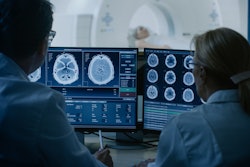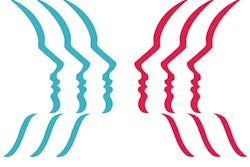Monday, November 28 | 3:20 p.m.-3:30 p.m. | SSE02-03 | Room E450A
Could deep learning reduce unnecessary biopsies of microcalcifications found on mammography? The potential is there, according to University of Chicago researchers.A team led by Karen Drukker, PhD, explored how deep learning performed in assessing mammographic microcalcifications, using a dataset of diagnostic mammography images of biopsy-sampled BI-RADS 4 and 5 lesions in 107 patients; the lesions presented as microcalcifications. For each of the images, a radiologist marked a region of interest that contained the microcalcification, and the data were then inputted into a deep-learning algorithm.
Of the 107 patients, 21 had breast cancer and 86 had benign lesions. At 100% sensitivity, 38 of 86 benign biopsies could be avoided using the deep-learning algorithm, while 11 of the 86 could be avoided based on the radiologist's assessment of whether the lesion would be malignant, Drukker and colleagues found.
"Reducing the number of unnecessary breast biopsies without loss in diagnostic sensitivity is an important step toward improved breast cancer diagnosis and cost reduction," the team concluded. "There seems to be great potential for the application of deep-learning methods as an aid to radiologists in the analysis of medical images."




















